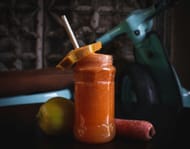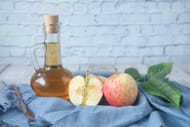After a colonoscopy, it's essential to start with a light and easily digestible diet as your digestive system may be sensitive. The purpose of a colonoscopy is to find any abnormalities in the colon, like colorectal cancer or polyps that could turn cancerous.
Before the colonoscopy screening, a clear liquid diet low in fiber is required to empty the colon. After a colonoscopy test, doctors usually suggest moderate foods that are easy on the digestive tract as a whole. Following a low-residue diet is another popular method following the operation.
Eating low-fiber foods and staying away from dairy in excess are part of a low-residue diet. This method makes sure the patient only consumes meals that are simple to digest and don't make a lot of feces, which will ultimately make the patient's post-colonoscopy experience more convenient.
What can you eat after a colonoscopy

Here’s a list of foods you can include in your diet after a colonoscopy:
1) Clear liquids
Start with clear beverages such as apple juice, plain tea, clear soup, or water.
Drinks that are red or purple should be avoided during the examination since they could be confused for blood.
2) Soft meals
Move on to soft meals such as smoothies, mashed potatoes, applesauce, and plain yogurt after you can handle clear liquids.
Select meals that are low in fiber and easy on the digestive tract.
3) Protein
Add sources of lean protein such as well-cooked fish, scrambled eggs, or boiled chicken.
4) Carbohydrates
Choose carbs that are simple to digest, including white bread, spaghetti, or rice.
As your tolerance increases, you may be able to reintroduce whole grains and high-fiber foods gradually.
5) Fruits and veggies
Start with canned or mashed fruits and vegetables that are devoid of seeds and skins.
Wait until your digestive system is completely healed before consuming any raw or fibrous fruits or vegetables.
Foods to avoid after a colonoscopy

It's usually recommended to avoid specific meals after a colonoscopy in order to minimize any discomfort or gastrointestinal irritation. After a colonoscopy, the following foods should be avoided:
1) Spicy foods
It's advisable to start with avoiding spicy foods since they can irritate the digestive system.
2) High-fiber foods
To avoid putting additional strain on the digestive system, foods high in fiber, such as whole grains, raw vegetables, and fruits with skins or seeds, should be avoided at first.
3) Seeds and nuts
It's best to stay away from these for a short while following the treatment because they can be irritating and difficult to digest.
4) Popcorn
It's advisable to avoid popcorn for a time because the hulls might be difficult to digest and uncomfortable.
5) Chewy meat
Select meats that are soft and easily broken down. Steer clear of chewy, rough meats that could be more difficult to digest.
6) Spiced or processed condiments
Avoid condiments that are harsh on the digestive tract, such as spicy mustard, hot sauce, and those with a lot of preservatives.
7) Carbonated Drinks
In the beginning, it's best to stick to non-carbonated liquids because carbonated drinks might induce gas and bloating.
Always abide by the precise dietary guidelines your healthcare professional provides after a colonoscopy. Depending on the specifics of your treatment and your unique health status, they might offer customized advice. Seek advice from your healthcare practitioner if you encounter any strange symptoms or pain.
